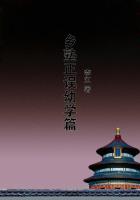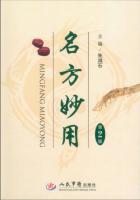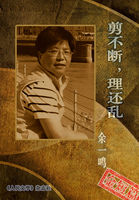After the telephone had been born in Boston, baptized in the Patent Office, and given a royal reception at the Philadelphia Centennial, it might be supposed that its life thenceforth would be one of peace and pleasantness.
But as this is history, and not fancy, there must be set down the very surprising fact that the young newcomer received no welcome and no notice from the great business world. "It is a scientific toy," said the men of trade and commerce. "It is an interesting instrument, of course, for professors of electricity and acoustics;but it can never be a practical necessity. As well might you propose to put a telescope into a steel-mill or to hitch a balloon to a shoe-factory."
Poor Bell, instead of being applauded, was pelted with a hailstorm of ridicule. He was an "impostor," a "ventriloquist," a "crank who says he can talk through a wire." The London Times alluded pompously to the telephone as the latest American humbug, and gave many profound reasons why speech could not be sent over a wire, because of the intermittent nature of the electric current. Almost all electricians--the men who were supposed to know--pronounced the telephone an impossible thing; and those who did not openly declare it to be a hoax, believed that Bell had stumbled upon some freakish use of electricity, which could never be of any practical value.
Even though he came late in the succession of inventors, Bell had to run the gantlet of scoffing and adversity. By the reception that the public gave to his telephone, he learned to sympathize with Howe, whose first sewing-machine was smashed by a Boston mob; with McCormick, whose first reaper was called "a cross between an Astley chariot, a wheelbarrow, and a flying-machine"; with Morse, whom ten Congresses regarded as a nuisance; with Cyrus Field, whose Atlantic Cable was denounced as "a mad freak of stubborn ignorance"; and with Westinghouse, who was called a fool for proposing "to stop a railroad train with wind."The very idea of talking at a piece of sheet-iron was so new and extraordinary that the normal mind repulsed it. Alike to the laborer and the scientist, it was incomprehensible. It was too freakish, too bizarre, to be used outside of the laboratory and the museum. No one, literally, could understand how it worked; and the only man who offered a clear solution of the mystery was a Boston mechanic, who maintained that there was "a hole through the middle of the wire."People who talked for the first time into a telephone box had a sort of stage fright. They felt foolish. To do so seemed an absurd performance, especially when they had to shout at the top of their voices. Plainly, whatever of convenience there might be in this new contrivance was far outweighed by the loss of personal dignity; and very few men had sufficient imagination to picture the telephone as a part of the machinery of their daily work. The banker said it might do well enough for grocers, but that it would never be of any value to banking; and the grocer said it might do well enough for bankers, but that it would never be of any value to grocers.
As Bell had worked out his invention in Salem, one editor displayed the headline, "Salem Witchcraft." The New York Herald said: "The effect is weird and almost supernatural." The Providence Press said: "It is hard to resist the notion that the powers of darkness are somehow in league with it." And The Boston Times said, in an editorial of bantering ridicule: "Afellow can now court his girl in China as well as in East Boston; but the most serious aspect of this invention is the awful and irresponsible power it will give to the average mother-in-law, who will be able to send her voice around the habitable globe."There were hundreds of shrewd capitalists in American cities in 1876, looking with sharp eyes in all directions for business chances; but not one of them came to Bell with an offer to buy his patent. Not one came running for a State contract.
And neither did any legislature, or city council, come forward to the task of giving the people a cheap and efficient telephone service.
As for Bell himself, he was not a man of affairs.
In all practical business matters, he was as incompetent as a Byron or a Shelley. He had done his part, and it now remained for men of different abilities to take up his telephone and adapt it to the uses and conditions of the business world.
The first man to undertake this work was Gardiner G. Hubbard, who became soon afterwards the father-in-law of Bell. He, too, was a man of enthusiasm rather than of efficiency. He was not a man of wealth or business experience, but he was admirably suited to introduce the telephone to a hostile public. His father had been a judge of the Massachusetts Supreme Court;and he himself was a lawyer whose practice had been mainly in matters of legislation. He was, in 1876, a man of venerable appearance, with white hair, worn long, and a patriarchal beard.
He was a familiar figure in Washington, and well known among the public men of his day. A versatile and entertaining companion, by turns prosperous and impecunious, and an optimist always, Gardiner Hubbard became a really indispensable factor as the first advance agent of the telephone business.
No other citizen had done more for the city of Cambridge than Hubbard. It was he who secured gas for Cambridge in 1853, and pure water, and a street-railway to Boston. He had gone through the South in 1860 in the patriotic hope that he might avert the impending Civil War. He had induced the legislature to establish the first public school for deaf-mutes, the school that drew Bell to Boston in 1871. And he had been for years a most restless agitator for improvements in telegraphy and the post office.
So, as a promoter of schemes for the public good, Hubbard was by no means a novice. His first step toward capturing the attention of an indifferent nation was to beat the big drum of publicity.















